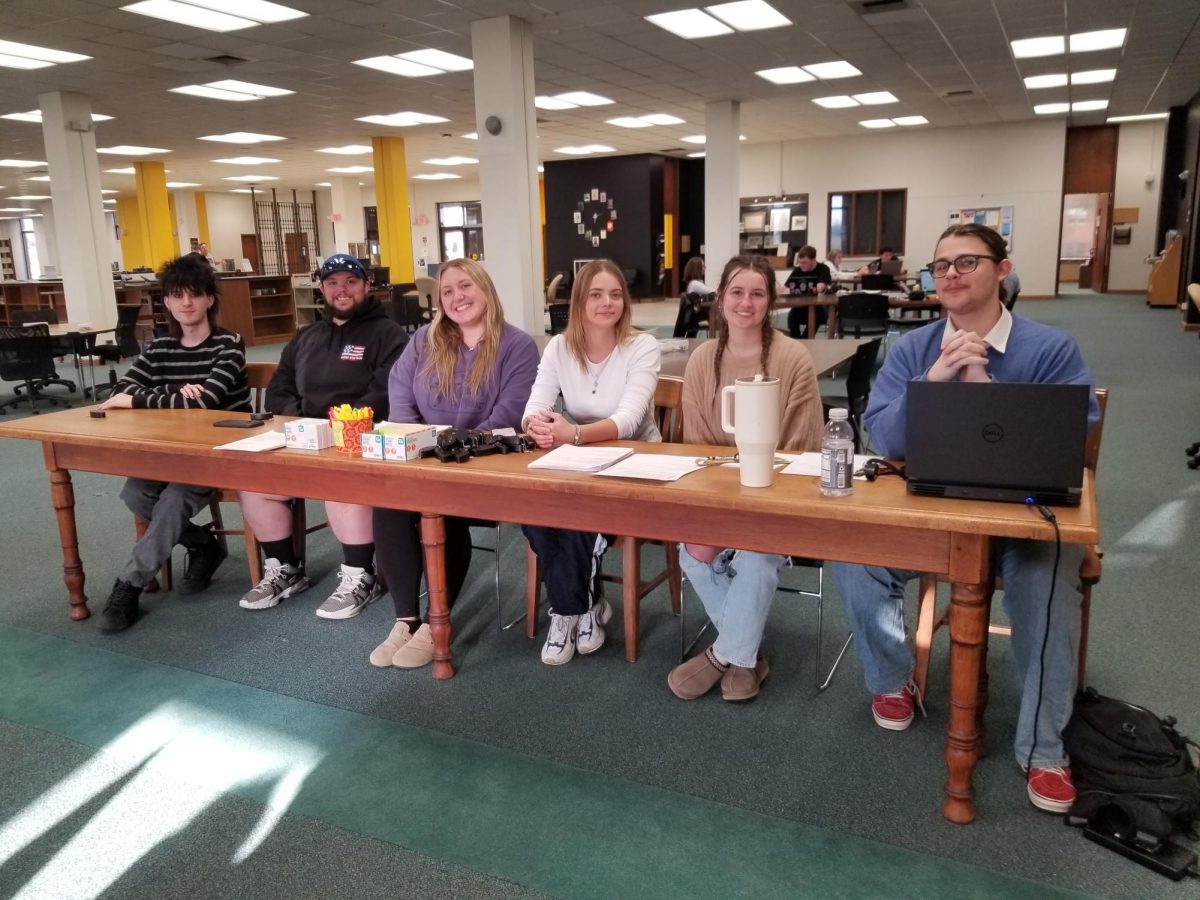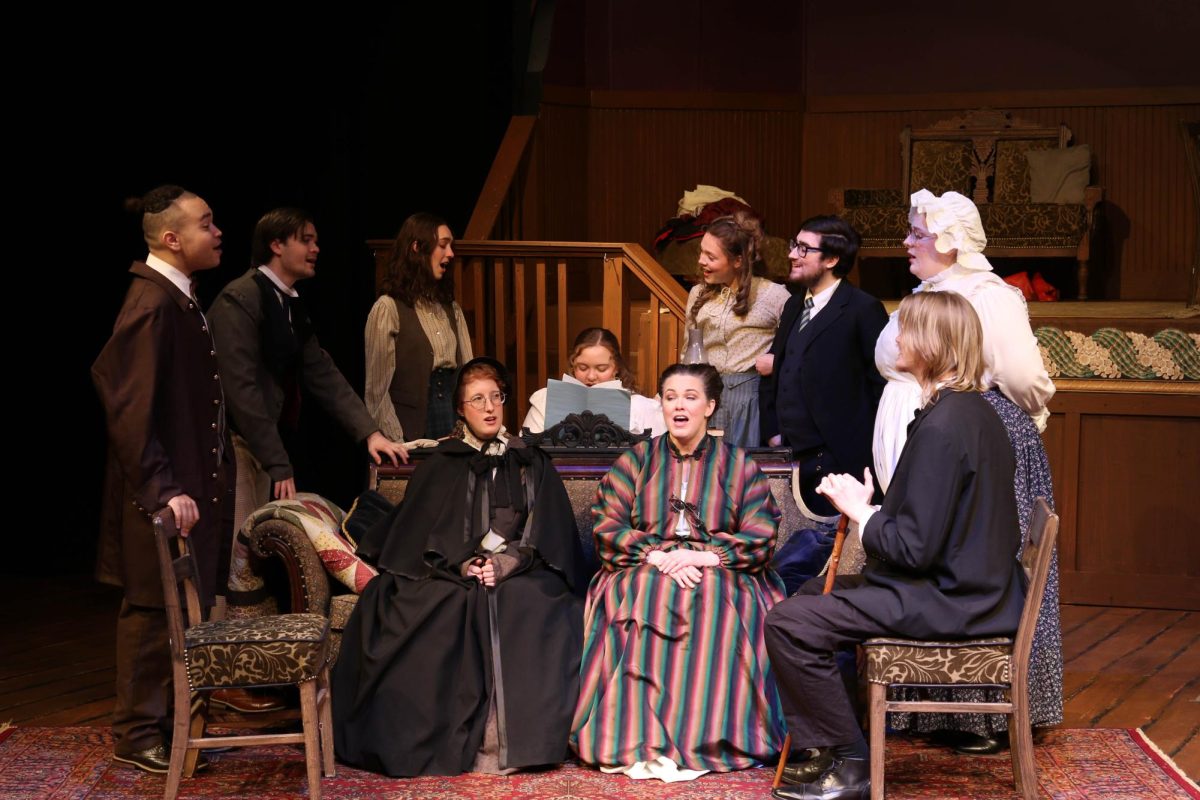By Daniel Morgan, Editor
West Liberty University’s Board of Governors voted against a proposed “academic realignment” at the end of the fall 2016 semester. The merger would have combined the College of Arts and Communication, College of Liberal Arts, and School of Professional Studies, but there is no longer any interest in reorganization.
Funding cuts, and the savings possible by hiring one dean to oversee all departments instead of three, was the main reason that the merger was suggested. According to WLU President Dr. Stephen Greiner, the university “has lost approximately $2 million in state funding over the last five years.”
“I fully support the decision of the WLU Board of Governors,” Greiner said. “It will enable us to move forward and continually maintain and enhance our quality academic programs. I am confident that with input and support from West Liberty University’s faculty, staff, and students we will face the budget challenges presented us. Falling behind is not an option. Therefore, we will continue to explore ways to save money and perform our duty, while never compromising the quality of our academic and student services programs. It is always my intention to do what is best for West Liberty University.”
On Oct. 4, 2016, a mass email from campusinfo confirmed rumors of the merger, which sparked controversy at the BOG meeting the next day as well as throughout campus. Several faculty and staff members felt the email was premature and misleading since the BOG had not yet discussed the issue.
“Subsequent to the email, which was sent after a decision was made at a meeting of the President’s Cabinet, it was determined that the Board would need to give final approval. In retrospect, it would have been better to not make the announcement of a final decision, but rather to inform the campus community that the recommendation was going forward to the Board,” Provost Dr. Brian Crawford said.
“I’m just glad we have a decision so we can move on,” Crawford said. “My primary focus has been on getting a Dean or Deans in place before the start of the 2017-18 academic year. The savings we might have seen from the reduction in administrators won’t be realized, so we’re essentially in the same place we were a year ago in terms of administrative costs. I made my recommendation based on the potential for financial savings. Others, including several Board members, thought the potential negatives outweighed the benefits. My position didn’t ever change, but the final decision wasn’t mine to make.”
College of Art and Comm. faculty members were very vocal about their opposition towards the merger because they didn’t want to lose the current administrative structure or their autonomy.
“I can’t speak for the BOG but I believe they understand how the current structure benefits students and that the disruption the merger could have caused was not worth the cost savings,” said Chair of the Department of Journalism, Communication Studies and Visual Arts. “I love the decision and I’m thrilled with how the process unfolded. President Greiner promised to listen to all constituents and he did that. He also did a great job of working with and bringing people together over the decision.”
Dr. Tammy McClain, Interim Dean of the College of Liberal Arts, feels that the BOG relied too much on the other college’s displeasure.
“I think that the BOG heard the voices of one college and chose the path of least resistance,” McClain said. “I would have liked the BOG to hear the opinions of all affected colleges before making their decision, but understand that they made a decision based on the information that they had. The BOG seemed to use the “the squeaky wheel gets the grease” approach, which in fact discounted the views of many who felt that the merger would have been beneficial but did not have an opportunity to address the board directly. I do not think either outcome would have been detrimental to students. Students will always be our primary concern, regardless of the configuration of the organizational chart. I still believe that the BOG has a responsibility to do what is best for the University as a whole.”
The search for permanent deans of the colleges have begun, and the idea of a merger will not be revisited anytime soon.
“As a member of the West Liberty University Board of Governors, I was very pleased to see the level of cooperation and understanding that occurred within the College of Arts & Communications and the College of Liberal Arts as they undertook their review of a possible reorganization,” said BOG Classified Staff Representative Rhonda Tysk, adding that the main objectives of both colleges were met.
“I am very appreciative that we now have a configuration of administration and board members who have an open ear to hear the concerns of the campus community,” said BOG Faculty Representative Jim Haizlett. “They listened to arguments for and against the merger, and I believe they made their best effort to reach a resolution that will be mutually beneficial for all parties. This type of responsiveness bodes well for the university as we continue to rebuild. I attribute most of the positive change to Dr. Greiner’s steady hand and affable demeanor. His student focus and high regard for staff and faculty have brought about a sweeping change of positivity that is contagious.”







